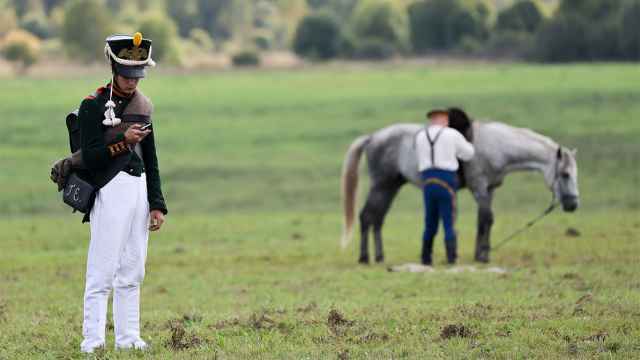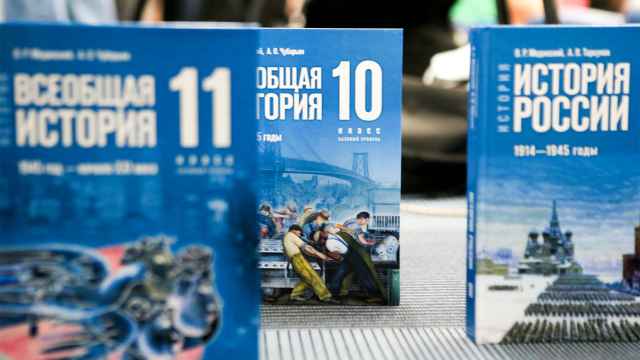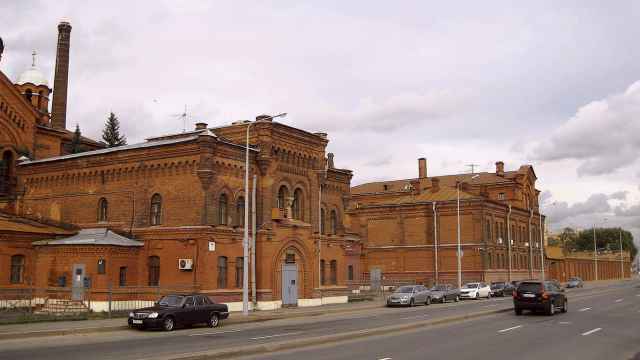Moscow Mayor Sergei Sobyanin halted a vote Friday on whether to restore a statue of Soviet secret police founder Felix Dzerzhinsky outside the domestic intelligence headquarters in the Russian capital.
The vote, which kicked off Thursday and was set to last a week, offered Muscovites a choice between a statue of Dzerzhinsky, who is seen as a symbol of the KGB's control over society in the Soviet Union, and Alexander Nevsky, a 13th century prince and Orthodox saint.
But with nearly 320,000 ballots cast two days later, with Nevsky leading Dzerzhinsky by 55% to 45%, Sobyanin decided to scrap the vote — and the new statue — altogether.
Writing on his official blog, the Moscow mayor said that the vote was "increasingly turning into a confrontation between people holding different views."
"Different points of view on history are inevitable. But the monuments that stand on the streets and squares should not split, but unite, society," he added.
The mayor said that the square in front of the headquarters of the Federal Security Service (FSB), the successor agency to the KGB, would remain statueless — for now.
"We will probably come back to this question and together we will make a correct and reasonable decision," Sobyanin wrote.
Three decades ago, Russians toppled the original statue of Dzerzhinsky in August 1991 as 100,000 people celebrated a failed putsch against Mikhail Gorbachev, the Soviet Union's final leader who brought about its dissolution.
The 11-ton bronze statue, which is considered part of Russia's cultural heritage, is now held in a park of Soviet monuments in central Moscow.
A Message from The Moscow Times:
Dear readers,
We are facing unprecedented challenges. Russia's Prosecutor General's Office has designated The Moscow Times as an "undesirable" organization, criminalizing our work and putting our staff at risk of prosecution. This follows our earlier unjust labeling as a "foreign agent."
These actions are direct attempts to silence independent journalism in Russia. The authorities claim our work "discredits the decisions of the Russian leadership." We see things differently: we strive to provide accurate, unbiased reporting on Russia.
We, the journalists of The Moscow Times, refuse to be silenced. But to continue our work, we need your help.
Your support, no matter how small, makes a world of difference. If you can, please support us monthly starting from just $2. It's quick to set up, and every contribution makes a significant impact.
By supporting The Moscow Times, you're defending open, independent journalism in the face of repression. Thank you for standing with us.
Remind me later.






